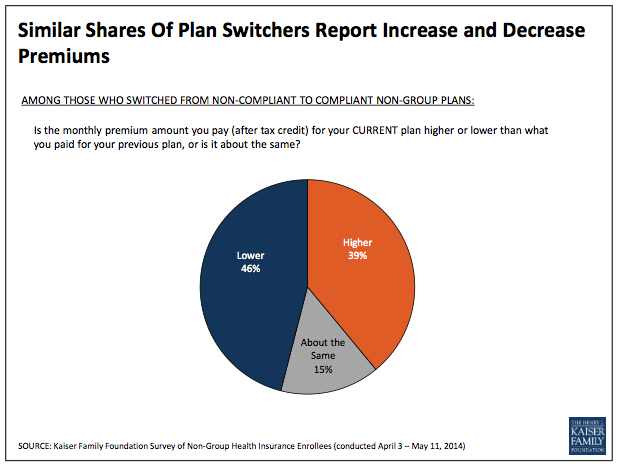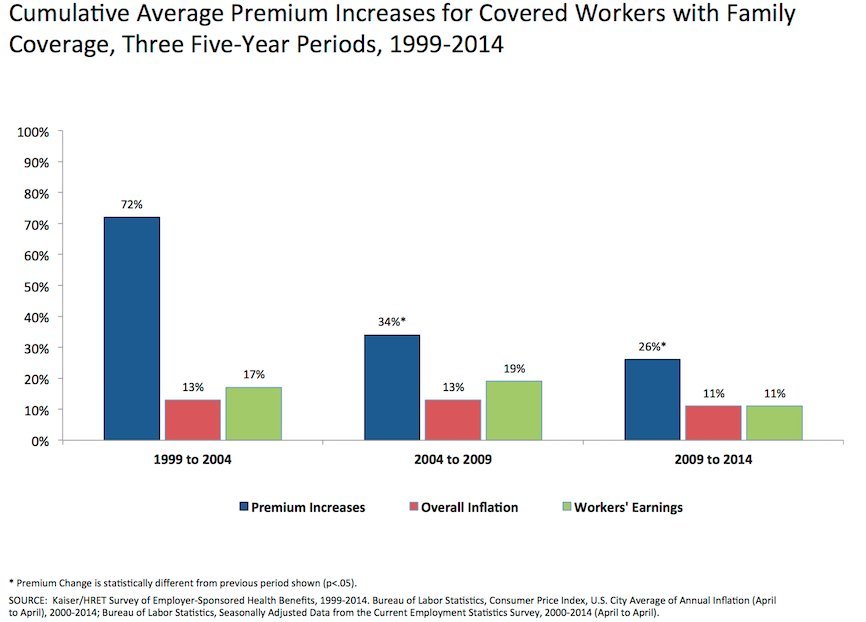Supreme Court to Hear Case Against Obamacare, But Is It Working?
By:
On Friday the Supreme Court agreed to hear a new case that could possibly invalidate a key component of the Affordable Care Act (aka Obamacare) and leave patients stuck with soaring healthcare costs because of some possibly ambiguous language in the law. The focus of the new challenge is the issue of federal subsidies for patients. When the bill was written, the intention was that every state would set up their own health care exchanges (i.e. marketplaces), with the federal exchange as the backup. These state exchanges were declared eligible for federal subsidies (ie: federal assistance-- think discounts-- for lower income Americans) in order to get going, and when people bought health insurance through the state-run exchanges, the costs were subsidized with federal funds. When it was ready to roll out, a majority of the states deferred to the federal exchange. But given some vague language in the legislation, opponents of Obamacare have challenged, claiming that subsidies were only meant for states who had set up their own exchanges, which would nullify all of the discounts on insurance plans purchased through the federal exchange. This would particularly affect citizens in red states, as many Republican Governors who opposed Obamacare never set up their own statewide exchanges. In essence, if the challenge is heard and granted, healthcare costs for people who already bought insurance could shoot up dramatically.
Estimates say 87% of people who purchased insurance got plans with discounts attached, which comes out to nearly 6.35 MILLION people. The average person saved 76% off the sticker price because of these subsidies, and unless the states figure out how to somehow create their own exchanges to re-establish the subsidies to comply with the law, health insurance premiums could be crippling for many.
So has Obamacare been a success?
Let's look at the law's mission statement, for starters: "To provide, affordable quality health care for all Americans and reduce the growth in health care spending."
The "all Americans" is key: the U.S., unlike countries such as the United Kingdom and Switzerland does not have universal healthcare. However, Obamacare has successfully increased the number of Americans with insurance coverage. Multiple surveys from the Commonwealth Fund, Gallup, the Rand Corporation, and the Urban Institute show that number of uninsured Americans has dropped by somewhere between 10 and 12 million from over 30 million. This number also includes those that have coverage thanks to the under-26 provision that allows young people to remain on their parents' plans.
Want the simplest explanation of Obamacare you've ever seen? Watch this video:
As the New Republic notes, two of the biggest downsides of Obamacare occurred at the beginning - when people's plans were canceled and insurers raised their premiums to meet the law's stipulations, such as covering people with pre-existing conditions. While sensationalized stories of a family's struggle to afford these premiums pull at the heartstrings - and deserve to be mentioned -what also should be given the same fair media attention is the fact that the law provided tax credits, which partially or fully remedied the price increase. In addition, these these tax credits helped to alleviate the high rates for for people with poor health.
A survey by the Kaiser Foundation found that people who changed from group insurance coverage to non-group insurance coverage that complied with Obamacare more often reported paying less:

Now what about those premiums that rose immediately after Obamacare launched? Well, it turns out that these premiums are barely rising. In fact, looking at the past five years in average premium increases for workers with family coverage, the rise is 8% less than the increase from 2005 to 2009:

In fact, healthcare spending in general is expected to cost $900 billion less than originally predicted from 2011 to 2021. Now, of course, with any new system, it will take more time to see the long term effects of Obamacare. But when it comes to the law's main goals - getting more people insured and decreasing health care spending--it appears the Affordable Care Act is succeeding.
